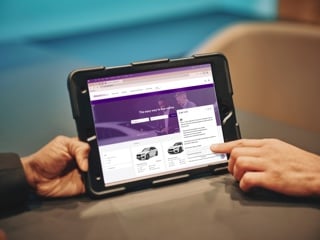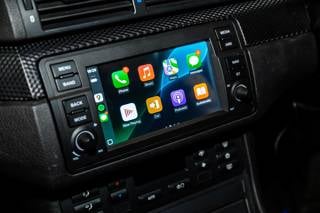Fear is the key factor which will prevent electric cars from becoming dominant in the automotive industry in the future, according to a former boss of Volvo.
The anxiety around loss of battery power, common to many in this digital, 'hand-held' age is a common concern amongst consumers, no matter what the size of the device.
Stefen Jacoby, who was the carmaker’s chief executive, said: “If the battery goes down on their cell phone people feel really bad. If it’s your car in the middle of a traffic jam you will feel even worse."
It’s that emotional connection which is a major stumbling block for electric vehicles, said Jacoby. That, and the price.
These issues are being addressed but Jacoby said: "I don’t believe EVs will have a major role in the future. They will have some sort of role, for example, in cities as taxis or urban delivery vehicles, but for a normal household, no. Over the next 10-15 years we will see various hybrid solutions, mated to the conventional internal combustion engine playing the dominant role."
Volvo has never committed to producing battery electric cars, producing just a small test fleet of C30 Electric cars in 2011, introduced under Jacoby’s stewardship. To avoid the ‘range-anxiety’ stumbling block, the carmaker instead launched the world’s first diesel-electric plug-in hybrid last year-the V60 PHEV car-with a range of up to 560 miles.
The role of the dealer in the internet age
As technology moves on, the internet will play an increasing role in the car buying process – but there is still a place for the traditional dealer.
Jacoby said: "Although they will do all their research online, and in many cases be better informed than salesmen, customers still want to drive the car at some point before making a commitment."
Dealers will still have to move with the times, however, and re-think their business model, Jacoby added.
Jacoby also previously headed up Volkswagen’s operations in Asia and North America and was CEO of Mitsubishi Europe.
He said: "I’m looking at the industry from the outside for the first time in 27 years. One thing that has changed from when I started out is that this is no longer a job for life or one where you are necessarily in the same place all the time.
"When I started out in 1995 you only competed with your fellow Germans. Now you have to compete with people from China, India and all over the world. The pace of change has also picked up – just look at communication: It took radio 38 years to reach an audience of 50m people, television took 13 years, the internet four years and twitter just nine months.
"With model development and lifecycle times of 10 years the motor industry is starting to lag behind. It has got to learn to move more quickly."





















irishboy4 - 10/02/2013 05:26
Me thinks the oil companies are surpressing long range battery development